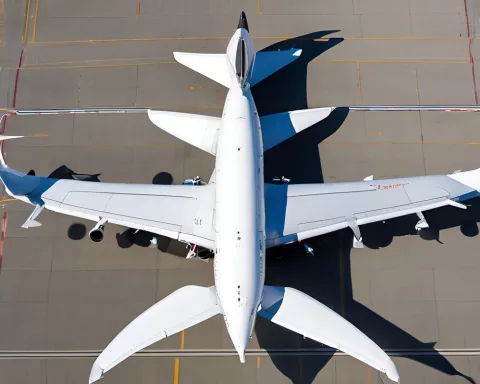Cape Town Air Access and Wesgro have jointly released new data highlighting the significant contribution of international travelers to the local economy. The collaborative project aims to boost the city’s aviation industry, and the Western Cape’s tourism, trade, and investment promotion agency, respectively. The study shows that air travel remains crucial to the local economy, with its far-reaching influence on job creation, direct tourism spending, GDP expansion, and air cargo logistics.
Significant Economic Contribution
In 2022, foreign passengers numbering 605,000 injected a massive R24.3 billion into the Western Cape’s economy, supporting 10,600 job opportunities. Every 100 international passengers traveling to Cape Town and its surrounding region generate R2.1 million in direct tourism spending. These 100 passengers also facilitate the movement of R1.4 million worth of air cargo destined for the province.
Aviation’s Substantial Role in Fostering Economic Prosperity
Wesgro highlights the aviation sector’s crucial role in fostering economic prosperity, with every 100 passenger arrivals contributing R500,000 to the provincial GDP. This accomplishment is through direct and indirect aviation value chains, ultimately creating two local jobs.
Top Source Markets
Out of every 100 passengers, 39 are South African nationals, while 61 come from foreign countries. The United Kingdom, Germany, the United States, the Netherlands, and Namibia are among the top five markets, collectively representing the primary source markets for tourism and exports.
Positive Impact on Tourism and the Broader Economy
Wrenelle Stander, CEO of Wesgro and official spokesperson for Cape Town Air Access, highlights the project’s significance in increasing direct air connectivity and its ripple effect on both tourism and the broader economy. Stander anticipates that the upcoming peak summer season will surpass 2019 passenger levels, with further growth expected in 2023.
Vital Role of Aviation in Destination Value Offering
Alderman James Vos, mayoral committee member for economic growth at the City of Cape Town, emphasizes the vital role aviation plays in Cape Town’s destination value offering. He believes that landing more flights benefits multiple industries and helps create tourism-related jobs in every household in the metro. As a funding partner of the Air Access initiative, the city takes pride in its positive impact on the local tourism sector and the wider economy.
Aviation Sector as a Primary Engine of Economic Development
Western Cape Minister of Finance and Economic Opportunities Mireille Wenger reaffirms the growing significance of the aviation sector as a primary engine of economic development and its broad contributions to other industries as a catalyst for various economic activities. Since its inception in 2015, the Cape Town Air Access project has continued to yield dividends, with the province now capturing a large share of South Africa’s business and tourism traffic.
Enhanced Competition in the Local Economy
Wenger notes the positive impact of passenger and cargo connectivity provided by the Western Cape on foreign direct investment and trade. Increased access to foreign markets encourages exports and enhances competition in the local economy.












